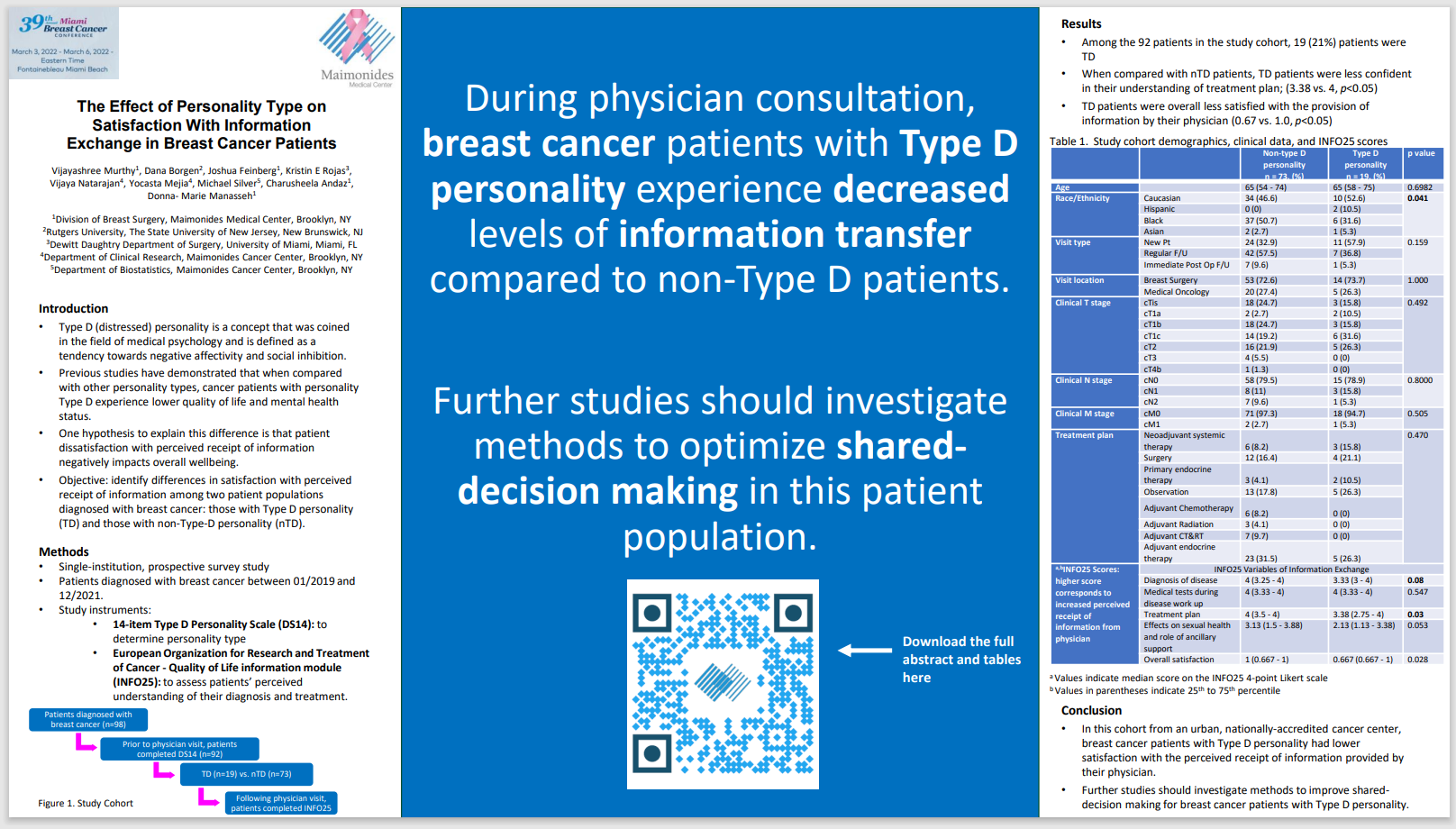Poster: The Effect of Personality Type on Satisfaction With Information Exchange in Breast Cancer Patients
Authors: Vijayashree Murthy, Dana Borgen, Joshua Feinberg, Kristin E. Rojas, Vijaya Natarajan, Yocasta Mejia, Michael Silver, Charusheela Andaz, Donna-Marie Manasseh
The Type D personality, first defined by medical psychologists in the 1990s, is characterized by a set of personality traits that include sadness, irritability, lack of self-confidence, fear of rejection, hopelessness, and similar. (In keeping with these traits, the “D” stands for “distressed.”) Previous studies have shown that cancer patients with Type D personalities experience a lower quality of life than other cancer patients. They are also prone to a poorer mental health status. One hypothesized explanation for the difference is that patient dissatisfaction with perceived receipt of information negatively impacts overall wellbeing.
A group of researchers from the Division of Breast Surgery at Maimonides Medical Center in Brooklyn; Rutgers University; the Dewitt Daughtry Department of Surgery at the University of Miami, Miami, FL; and the departments of Clinical Research and Biostatistics at Maimonides Cancer worked together to identify differences in satisfaction with perceived receipt of information among two patient populations with breast cancer, one composed of patients with Type D personality (TD) and the second composed of patients with non-Type D personality (nTD).
- 92 patients were enrolled in the study
- Presentation, stage, and treatment received were similar in both groups
- All patients were diagnosed with breast cancer between January 2019 and December 2021.
Patients completed a global a global assessment survey to determine their personality type prior to their speaking with their physicians. Then, immediately following their visits, patients completed the European Organization for Research and Treatment of Cancer — Quality of Life information module, a validated questionnaire comprised of 25 questions based on a 4-point Likert scale and used to assess patients’ perceived understanding of their diagnosis and treatment. Analyses were conducted using SPSS v 27. Nineteen patients (21%) were identified as TD.
During consultations with their physicians, TD patients experienced decreased levels of information transfer as compared to nTD patients and reported lower satisfaction with the perceived receipt of information from their physicians. As a result, the researchers concluded that future studies should investigate methods for optimizing shared decision-making in the TD patient population.






